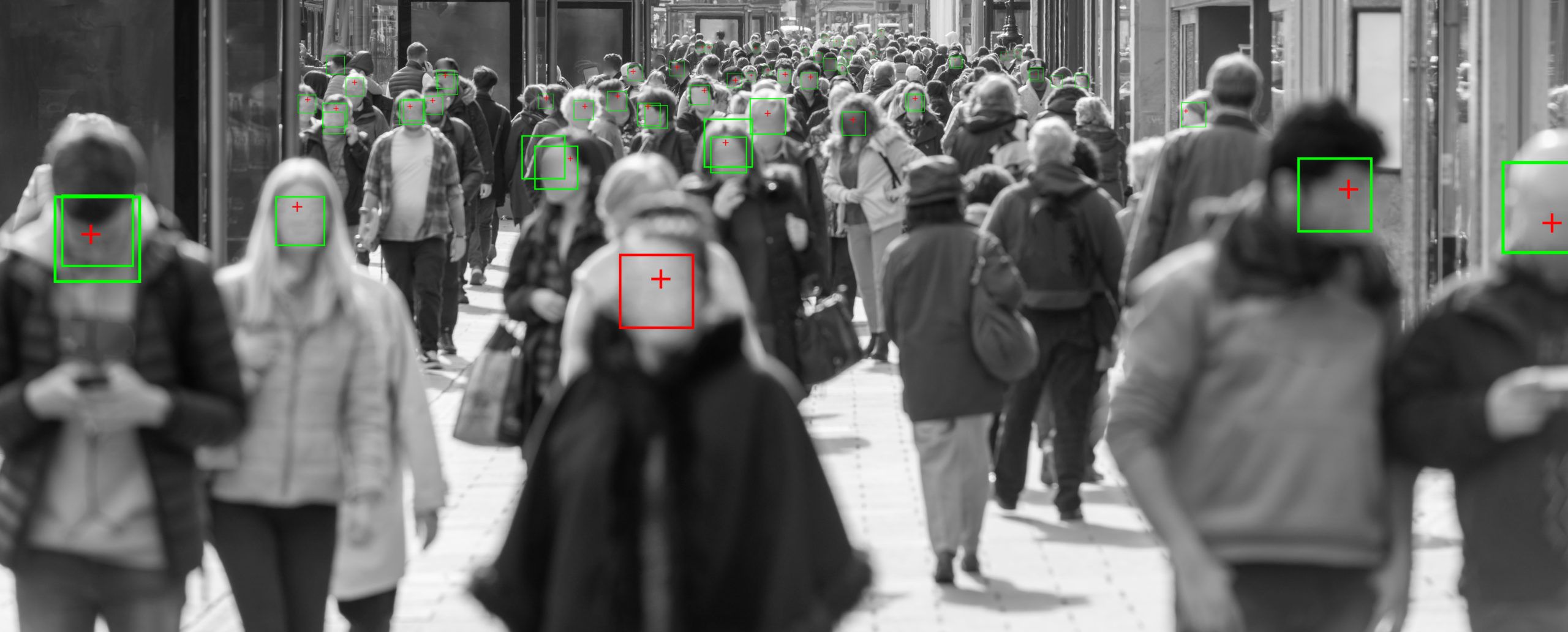Advancing Digitally—Or Is It Really Advancing?

World commerce is rapidly changing. How people prove their identity and gain access to places is reaching uncharted territory. Emerging technologies like facial recognition software enable this radical transformation around the world.
This year’s Super Bowl featured advanced technology that will soon be available in all NFL stadiums. It wasn’t on the field or announced on the telecast. It was at the ticket booth.
The company Wicket Software produced a biometric ID system called Express Access. They tested it with six teams last year and will expand to all thirty-two NFL teams when the new season begins later this year.
This system uses facial recognition software to verify people as they enter NFL stadiums. Fans who do not want to stand in ticketing lines can register their face scan and then enter the stadium quickly through an Express Access lane. Tickets are no longer needed because a fan’s face becomes their ticket. Currently, the use of this system is limited and voluntary. Could it become mandatory one day?
It goes well beyond entering an NFL stadium. This facial recognition software is used to make buying concessions more efficient as well. For example, fans who wish to purchase alcoholic beverages inside the stadium can upload their ID and credit card to verify their age and pay with their facial recognition scan in a matter of seconds instead of having to fumble with their wallets in the concession line and wait for the cashier to verify their age and ID.
The Cleveland Browns became the test case for this software in 2020 as COVID-19 forced several sectors to search for touchless solutions. As Express Access rolled out, a question lingered in many minds. Would fans trust facial authentication enough to use it? The answer, according to Wicket, is a resounding yes. They report that as of 2023, 43 percent of all Cleveland Browns season ticket holders enrolled in Express Access facial ticketing. Further, in 2023 almost 100,000 tickets were scanned using Express Access lanes.
Not only does this technology control access to the stadium, but the Browns also use it to allow access to certain parts of the stadium, such as the field. Facial scans are becoming a new digital key to allow or deny access to staff throughout the Browns stadium and offices.
For years, key fobs have been widely used to control access in many places, including businesses, gyms, schools, hospitals, and churches. However, key fobs can be lost, borrowed, or stolen. Scanning a face at an entry point eliminates all these issues.
Quicker, easier, and more secure—these promises are oft-repeated by tech companies as they market their products that are changing how people think about buying, identifying, and accessing certain spaces. Other sports leagues and sectors see the advantages of using these systems and are rolling out similar products.
The American public is being conditioned to think this is normal. As time marches on, will this technology pop up in more and more locations? What kinds of places will implement these kinds of systems?
Imagine a world in which all places require this kind of system. What if someone is denied access to fuel when their facial recognition scan at the gas pump fails because they are outside the purchasing zone established for them? All kinds of problems will arise if this kind of technology is made mandatory.
Cash is anonymous. A person who has enough of it can buy what they want anywhere, anytime. Purchasing power is in the hands of the one who holds the cash. Biometric payment and identification devices remove anonymity and power from the purchaser. Coupling digital payment systems with a cashless society will eventually restrict consumers’ freedoms.
Digital Advancements Around the World
Technology enables new horizons previously thought impossible. Thanks to biometric data, the dawn of the fully digital age is here. However, these products are not limited to corporations and sports teams. World governments are jumping on board, as well.
People tend to consider the convenience and opportunities emerging technologies can provide but seldom consider what might happen if control of these powerful devices falls into the hands of the wrong powers. While the world pushes for digital conveniences, what freedoms might be forsaken as a result? In this technological arms race among world governments, the fear of falling behind seems to surpass the preservation of liberty in the eyes of many leaders.
Jamaica announced the rollout of its national digital ID system and aims to complete phase one during the first quarter of 2024. This Caribbean island nation plans to include a digital wallet, digital birth certificates, and digitization of civil records in this program. Jamaica seeks to use the most secure databases to store all of this personal information. Goals are set to complete this project over the next couple of years.
War-torn South Sudan seeks to curb corruption by adopting a biometric verification system to its public service payroll. Widespread corruption has further weakened South Sudan’s struggling economy. It sees this as a necessary step to regain control over its payroll expenses. In some cases, payments were made to fake accounts as people took advantage of the current system.
World Bank is a central supporter of this technological transformation in South Sudan and expects it to take four years to fully implement, according to Eye Radio. By the way, World Bank is a major player in the World Economic Forum.
Vietnam is rapidly moving toward a digital government. Its prime minister recently requested that the government explore using facial recognition technology for its immigration process to make the process simpler and quicker, according to VN Express, a leading Vietnamese newspaper. Could a global digital database of all people be proposed as the solution to immigration and border crises around the world? Is a one-world citizenship on the horizon?
Digital immigration efforts are only the tip of the iceberg for Vietnam. The government is pushing a nationwide digital transformation project, expected to be completed by 2030, according to Biometric Update. In November 2023, the Vietnamese government voted to approve legislation that requires a biometric scan of the iris of everyone who enrolls in their digital ID program. Further, the digital ID program will collect biometric face, fingerprint, voice, and, perhaps most controversial of all, DNA records.
This digital ID will give citizens access to many services including cashless payments and medical diagnoses, according to Biometric Update. Currently, this national ID program is voluntary for Vietnamese citizens, but one wonders how long it will remain that way before it becomes mandatory.
Prepared for What Comes Next
Practical and biblically prophetic implications permeate these plans. Several practical issues are peppered throughout this article. Consider some other practical ramifications. The cost of freedom is high. Previous generations of Americans fought physical wars to purchase, provide, and protect the freedoms its citizens enjoy.
Are Americans passively letting freedoms slip away by buying into emerging technologies without asking hard questions or thinking critically about them? What will it take to recapture those freedoms once they are given away? This is not a call for war or violence; rather, it is a call to consider the implications of the path paved by technology before crossing a bridge too far to recover.
Bible prophecy makes it clear that the world will be one during the Great Tribulation (Rev. 13:7). A global citizenship will come. Is the world watching the emergence of one-world citizenship through the American border crisis and digital ID policies like Vietnam’s?
The countries listed in this article are far from the total list of nations that are pursuing digital government and ID systems. Most European countries are far ahead of Jamaica and Vietnam in digital government scores. The U.S. is currently ranked tenth in the United Nation’s e-government development index. Many states are developing digital IDs. There seems to be no slowing down this digital gold rush.
Do not let this news alarm you. God gave Bible prophecy in part to inform and prepare people, not to scare them. Practical preparations and alertness are important. The greatest preparation people can make is spiritual and eternal. One could have enough food and supplies to survive for years but still die in their sins. What benefit would they gain if they survive a doomsday scenario yet die without God’s forgiveness?
The church must continue proclaiming the Good News of Jesus. This is the central message the world needs at this hour. As the world marches toward the biblical end-times scenario, the church holds the hope people need.
Friend, have you received God’s forgiveness for your sins? You can know that you are prepared for eternity right now. Call upon Jesus today. “For whosoever shall call upon the name of the Lord shall be saved” (Rom. 10:13).
Christian friend, commit to praying daily for those you love who are not right with God. Pray for opportunities to share the Good News of Jesus with others. Help others prepare for eternity. The future is bright for the child of God!
More from Prophecy in the News Magazine
This site uses Akismet to reduce spam. Learn how your comment data is processed.




Leave a Reply